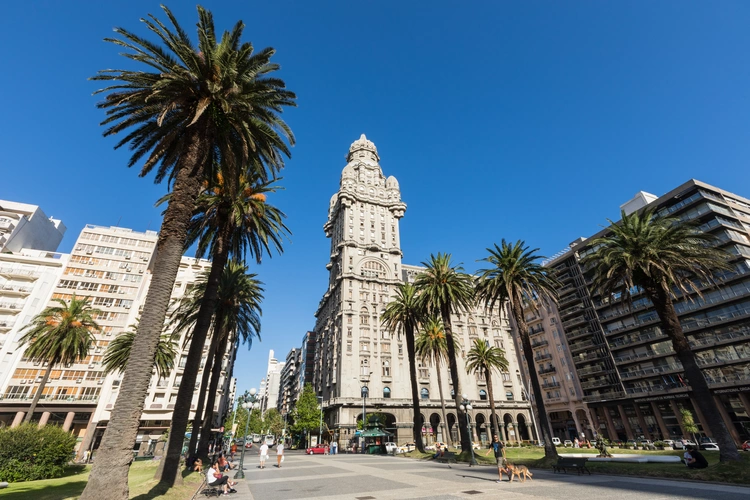Paying Taxes In Uruguay
The General Taxation Directorate (Dirección General Impositiva) collects taxes in Uruguay.
A major tax reform bill was passed on 1st July, 2007, but one thing remained unchanged: all investments and activities outside Uruguay will be untouched. That is, Uruguay does not tax on outside income or investments, making it an ideal place to run a business abroad from anywhere.
Since April 2011, tax-resident foreigners in Uruguay enjoy tax exemption on foreign-earned income only during their first five years in the country.
After that, certain types of income, specifically dividends and interest, are taxed at 12%.
In short, until the end of the five-year exemption, dividends in Uruguay are tax free, whether they’re foreign or locally sourced.
That’s not to say that you’ll likely avoid all taxes by running a business there…
Taxes If You Choose To Relocate To Uruguay
Value Added Tax
For many items, VAT runs at 22% of the selling price.
But some goods like medicines have a more reasonable 10% tax imposed on them.
Fruits and vegetables, however, have zero tax.
As of August 2014, the Financial Inclusion Law declared that a 4% tax deduction be offered for debit cards, and a 2% deduction for sales on credit cards.
This was a measure to reward those who chose not to engage in “under the table” cash transactions.
Property Tax
The municipal property tax lies within 0.25% to 1.2%, depending on the market value and price of the property.
There is also a school tax known as the Impuesto de Enseñanza Primaria in Spanish.
This is collected by the National Administration of Public Education.
The rate is 0.1% to 0.3% of the market value and does not apply to real estate in rural areas.
More on Real Estate in Uruguay
Income Tax For Individuals
Personal Income Tax is only payable on income earned within the country.
If you happen to earn an income inside the country, you’ll only owe tax on the amount exceeding 173,124 pesos per year.
Income tax ranges in Uruguay between 10 to 25% and just like in the US, certain expenses may be subtracted.
Tax on income earned inside the country is paid by Uruguay nationals and any foreign nationals who spend more than 183 days in the country for that tax year.
Rental Income Tax for Individuals
This is only applicable to individuals who may rent out any property they own.
There is a flat rate of 12% on all rental income but that income does not get reported along with regular employment income.
Capital Gains Tax
The capital gains tax rate is 12% for individuals, 12% for foreign corporations, and 25% for Uruguayan corporations.
Corporate Tax
This tax was initially set at 30% but since 2007 has been brought lower to 25%.
Fringe Benefit Tax
Corporations and all employees are subjected to this tax, which states that there is social security taxation on all fringe paid employees at the rate of 7.5% plus 5% of medical care.
In addition to this, employees have a withholding tax of 21% on any and all amounts they receive. Both of these percentages are due monthly.
Interest Deductions In Uruguay
The interest that may be paid to banks or other authorities has no limit to which it may be deducted.
However, interest paid to certain individuals has a set limit, which is usually determined by the Tax Authority.
Foreign Tax Relief
This is not available under Uruguayan tax laws as income earned overseas is not subjected to local income taxes.
Other Taxes
Regional administrations in the country can establish, collect and control certain taxes through their respective Departmental Councils.
The most significant local taxes include the Real Estate Tax, Vehicle Registration Fee and the Food Analysis Tax.
While Uruguay has no inheritance tax, the country does impose a wealth tax on the difference in assets and certain liabilities year over year.
Easy Guide To Uruguay Tax Rates








 . '
. '
 . '
. '
 . '
. '
 . '
. '







